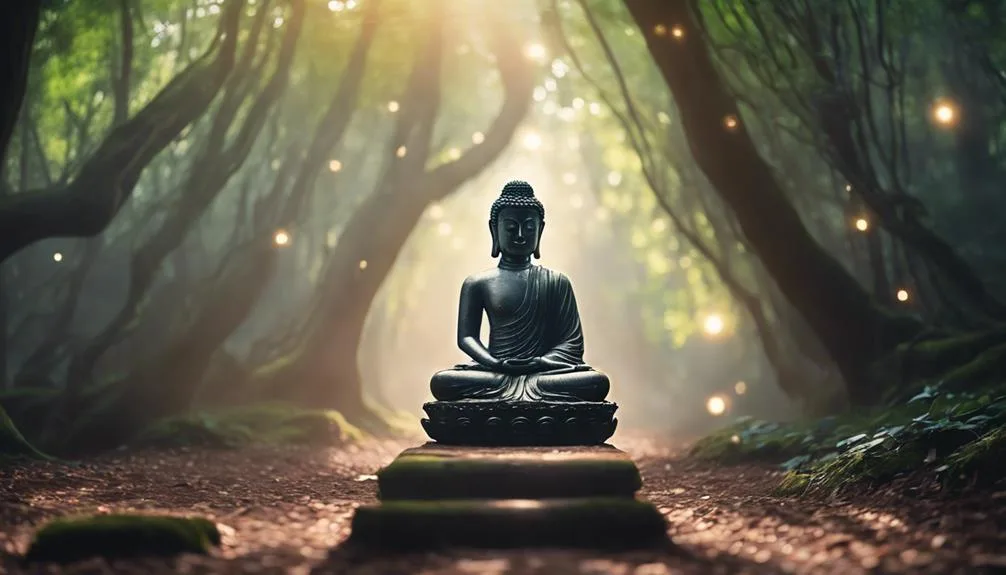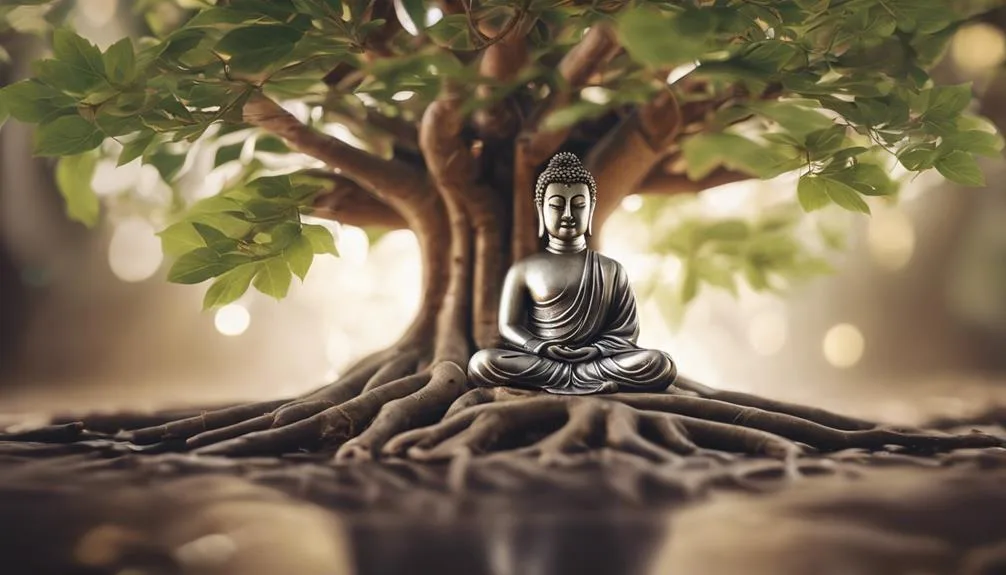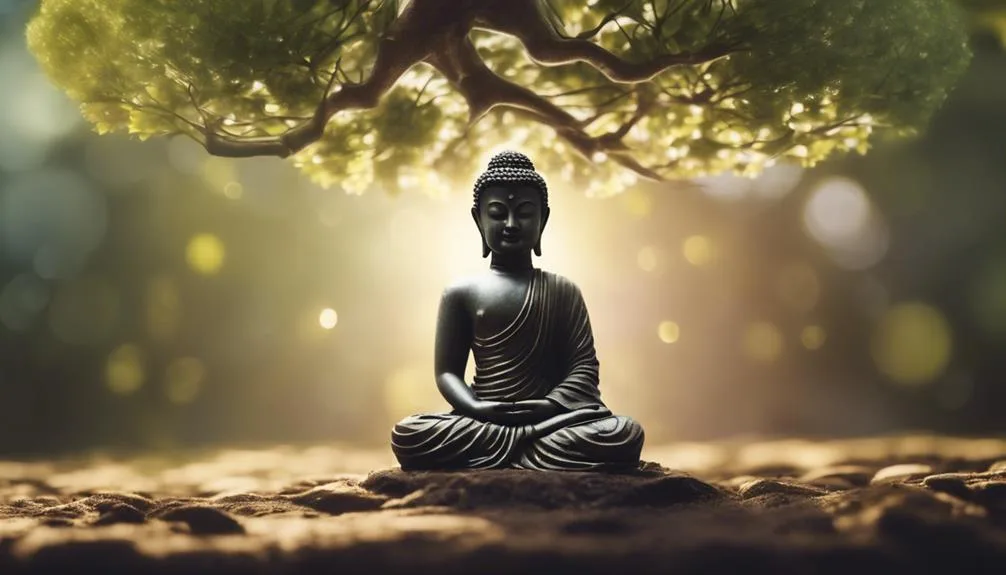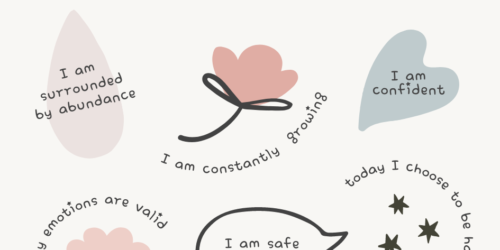Buddha's Path to Enlightenment Unveiled
Much like Siddhartha Gautama beneath the Bodhi tree, I've sat in contemplation, uncovering the layers of Buddha's path to enlightenment. This journey through the Eightfold Path has not only reshaped my understanding of life but has also offered a blueprint for navigating its complexities with wisdom and compassion.
As I've explored the principles of right view and intention, and the practices of ethical conduct and mindfulness, I've encountered profound insights that beg further exploration. Yet, there's an element of this path, particularly in how it integrates into the fabric of daily life, that remains teasingly elusive, inviting us to look deeper into our own experiences.
Key Takeaways
- The Eightfold Path is Buddhism's structured practice for understanding life and actions.
- Wisdom, ethical conduct, and meditation are core to achieving enlightenment.
- Right livelihood and moral conduct align work and actions with integrity.
- Concentration and mindfulness practices are essential for daily stability and focus.
The Eightfold Path Explained
At its core, the Eightfold Path offers a comprehensive guide for navigating life with mindfulness and ethical integrity. Delving into its principles, I've found that exploring mindfulness practices not only enhances my daily experiences but also deepens my connection with the present moment.
Understanding meditative techniques, an integral part of this path, has transformed my approach to challenges, allowing me to respond with calmness and clarity rather than react impulsively.
This journey through the Eightfold Path has taught me the importance of introspection, guiding me to live a life aligned with my values. It's a constant process of learning and unlearning, but the insights gained are invaluable, directing me towards a more mindful and compassionate existence.
Wisdom Through Right View
Understanding 'Right View' is fundamental to navigating the Buddhist path, as it lays the groundwork for wisdom by teaching us to see the world and our actions within it more clearly. This perspective isn't just about intellectual understanding; it's about deeply seeing the true nature of things through developing insight and reflective practice.
- Developing Insight involves a continuous, honest examination of our thoughts and actions.
- Reflective Practice enables us to question our perceptions and biases.
- Embracing impermanence teaches us to accept change as a natural aspect of existence.
- Understanding suffering's origins guides us towards more compassionate living.
- Realizing interconnectedness fosters a sense of responsibility for our actions.
This approach to wisdom is both a beginning and a continuous journey, enriching our lives with depth and clarity.
Cultivating Ethical Conduct

Building on the foundation of Right View, I now explore how ethical conduct shapes our path towards enlightenment, emphasizing the transformative power of aligning actions with deep-seated wisdom and compassion.
Ethical behavior isn't just about adhering to external standards; it's an internal compass guiding us towards moral integrity. This compass influences every decision, ensuring our actions reflect our commitment to kindness and respect for all beings.
By cultivating ethical conduct, I delve into the nuances of my actions, dissecting their impacts and aligning them with my core values. This process isn't static; it's a dynamic, ongoing evaluation that sharpens my understanding and deepens my connection to the world.
Ethical conduct, thus, becomes a vital bridge between personal growth and societal harmony, underscoring its critical role on the enlightenment journey.
Principles of Right Livelihood
Delving into the principles of Right Livelihood, we uncover the profound impact our professional choices have on our path to enlightenment and societal well-being. By committing to ethical engagement in our work, we foster a harmonious balance between our personal aspirations and the collective good. This principle guides us to reflect deeply on how our work affects the world around us.
- Ensuring our work doesn't harm others
- Balancing work life with personal growth and community service
- Choosing professions that contribute positively to society
- Practicing integrity and honesty in all professional dealings
- Engaging in continuous self-reflection to align our work with ethical values
These practices not only enhance our own spiritual journey but also contribute to a more compassionate and mindful society.
Foundations of Meditation

I'll kick off our exploration of the Foundations of Meditation by highlighting its pivotal role in achieving mental clarity and emotional stability. Central to this practice are mindful breathing and concentration techniques, both of which serve as cornerstones for deepening one's meditation journey.
Mindful breathing isn't just about taking deep breaths; it's an art of being present, acknowledging each breath, and observing the nuances of our mind and body without judgment. On the other hand, concentration techniques foster a single-pointedness of mind, allowing us to cut through the noise and focus on what truly matters.
Together, these practices cultivate a mental environment conducive to profound insight and emotional equilibrium. They're not just tools for the cushion; they're essential skills for navigating the complexities of life with grace and wisdom.
Embracing Mindfulness
Embracing mindfulness isn't just about being aware of the present moment; it's a profound practice that transforms how we engage with our thoughts, emotions, and the world around us. Mindful living means integrating mindfulness into every facet of our day, allowing us to experience the richness of each present moment.
- Mindful Breathing: Anchors us in the here and now.
- Observation: Enhances appreciation of our surroundings.
- Listening: Deepens connections with others.
- Eating: Turns meals into meditative practices.
- Walking: Becomes a journey of mindfulness.
These practices cultivate a deeper awareness and appreciation for life, enabling us to live more fully and thoughtfully. By embracing mindfulness, I've discovered a powerful tool for navigating the complexities of life with grace and equanimity.
The Power of Concentration

While exploring the depths of Buddhist practice, it's clear that mastering the power of concentration is not just a meditative tool but a fundamental aspect of leading a mindful and intentional life. Developing focus and mental clarity through concentration allows us to navigate life's complexities with grace and insight.
| Aspect | Benefit | Practice |
|---|---|---|
| Developing Focus | Sharpens perception | Mindful breathing |
| Mental Clarity | Enhances decision-making | Focused meditation |
| Intentional Living | Fosters purposeful actions | Daily mindfulness |
| Mindful Awareness | Cultivates present-moment living | Observing thoughts |
In my journey, I've found that concentration isn't merely about excluding distractions but about deeply engaging with the present moment, leading to a richer, more connected experience of life.
Integrating Loving-Kindness
Building on the foundation of concentration, integrating loving-kindness into our practice enriches our journey towards mindfulness and compassion. The blending of kindness practice with concentration benefits us in profound ways, offering a pathway to deeper understanding and peace.
- Kindness practice nurtures a compassionate attitude towards ourselves and others.
- Concentration benefits from the calm and openness fostered by loving-kindness.
- Loving-kindness meditation enhances emotional resilience, reducing reactivity.
- Integrating kindness into daily life deepens our connections and understanding.
- Developing a kind heart supports concentration amidst distractions, promoting clarity and focus.
Cultivating loving-kindness alongside concentration not only enriches our personal practice but also extends its impact, fostering a more compassionate and mindful world.
Frequently Asked Questions
How Does the Eightfold Path Compare to Other Religious or Philosophical Paths to Enlightenment or Self-Improvement?
I've found that the Eightfold Path stands unique in comparative theology and philosophical ethics by offering a holistic approach to self-improvement, integrating practical life conduct with deep introspection, unlike many other paths focused solely on belief or ritual.
Can the Principles of the Eightfold Path Be Applied in a Secular Context Without Adhering to Buddhist Spiritual Beliefs?
I've always wondered if one could embrace the Eightfold Path's wisdom without diving into Buddhism. Turns out, the principles, especially secular ethics and mindfulness benefits, offer profound insights for anyone, Buddhist or not.
How Has the Interpretation or Practice of the Eightfold Path Evolved in Different Buddhist Traditions Over Time?
I've noticed that the Eightfold Path's interpretation has evolved, reflecting historical origins and cultural variations. Different Buddhist traditions adapt practices, highlighting the path's flexibility and its core role in guiding ethical and mindful living.
What Are the Challenges and Common Misconceptions Beginners Face When Attempting to Follow the Eightfold Path?
I've read that 80% of beginners struggle with personal discipline and meditation misconceptions when starting the Eightfold Path. It's crucial to debunk these myths and foster a supportive, understanding environment for genuine progress.
How Does One Balance the Pursuit of Enlightenment Through the Eightfold Path With the Demands of Modern Life, Such as Career and Family Obligations?
I've found balancing the Eightfold Path with modern life's demands involves work-life balance and personal sacrifices. It's about integrating mindfulness and ethical actions into daily tasks, not separating spiritual practice from family or career responsibilities.
Conclusion
Ironically, the more I've sought to empty my mind, the fuller my life has become. Through the Eightfold Path, I've peeled away layers of illusion, only to find a richer, more vibrant reality beneath.
It's as if by focusing on the breath, I've learned to breathe life into every moment. My quest for enlightenment, initially aimed at transcending worldly concerns, has paradoxically grounded me more deeply in the here and now, revealing the profound in the mundane.
This journey, it turns out, isn't about reaching a destination but about discovering that the path itself is home.






